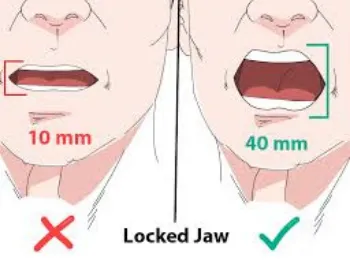Jaw locking is a condition where the jaw becomes temporarily stuck in an open or closed position, making it difficult or painful to move. This can be alarming and disruptive to everyday activities such as eating, speaking, or yawning. Understanding the causes of jaw locking and implementing preventive strategies is essential for maintaining jaw health and avoiding recurring episodes.
If you experience frequent jaw discomfort or sudden locking episodes, consulting a professional for Jaw Locking evaluation is highly recommended. Specialists can assess the underlying causes and provide targeted treatments to relieve pain, restore jaw mobility, and reduce the likelihood of future occurrences.
Understanding Jaw Locking
Jaw locking is often related to dysfunction of the temporomandibular joint (TMJ), which connects the lower jaw to the skull. The TMJ is a complex joint that allows for smooth opening, closing, and side-to-side movement of the jaw. When this joint or its surrounding muscles are strained, misaligned, or inflamed, it can lead to sudden or prolonged locking.
Jaw locking can be classified into two main types:
- Closed-lock: The jaw becomes stuck in a closed position, making it difficult to open.
- Open-lock: The jaw locks in an open position, preventing it from closing completely.
Both types can cause discomfort, headaches, and restricted movement, emphasizing the need for proper diagnosis and care.
Common Causes of Jaw Locking
Several factors can contribute to jaw locking, including:
1. Temporomandibular Joint Disorders (TMD)
TMD is the most common cause of jaw locking. It occurs when the TMJ or surrounding muscles are strained, misaligned, or inflamed. TMD can result from teeth grinding, jaw clenching, or previous jaw injuries.
2. Trauma or Injury
Direct trauma to the jaw, such as a blow during sports or an accident, can damage the joint or ligaments, leading to temporary or recurrent jaw locking.
3. Arthritis
Osteoarthritis or rheumatoid arthritis can affect the TMJ, causing inflammation, joint degeneration, and limited movement that may result in locking.
4. Disc Displacement
Within the TMJ, a small cartilage disc helps cushion and guide jaw movement. If this disc moves out of its proper position, it can cause the jaw to catch or lock during motion.
5. Muscle Spasms
Tension or spasms in the jaw muscles, often due to stress, anxiety, or overuse, can restrict movement and trigger locking episodes.
Symptoms Associated with Jaw Locking
Jaw locking is often accompanied by other symptoms that can help identify the underlying issue:
- Pain or tenderness around the jaw, face, or ears
- Clicking, popping, or grating sounds during jaw movement
- Headaches or earaches
- Difficulty opening or closing the mouth fully
- Swelling or stiffness in the jaw area
Early recognition of these symptoms can prevent worsening of the condition and facilitate timely treatment.
Preventing Jaw Locking
While treatment is essential, adopting preventive measures can reduce the risk of recurrence.
1. Avoid Overusing the Jaw
Limit activities that strain the jaw, such as chewing gum excessively, biting nails, or eating hard foods.
2. Manage Stress
Stress often leads to jaw clenching or teeth grinding, which can exacerbate TMJ issues. Practicing relaxation techniques like meditation, deep breathing, or yoga can help.
3. Maintain Proper Posture
Poor posture, especially while using computers or mobile devices, can strain neck and jaw muscles. Keeping the head aligned and shoulders relaxed supports healthy jaw function.
4. Use a Night Guard
For individuals who grind their teeth during sleep, a custom-fitted night guard can protect the TMJ and reduce muscle tension.
5. Perform Jaw Exercises
Gentle stretching and strengthening exercises recommended by a dental or physical therapy professional can improve jaw mobility and prevent locking.
6. Seek Early Treatment for TMD
Addressing TMD symptoms early, such as pain or clicking, can prevent the progression to severe jaw locking. Regular check-ups with a TMJ specialist can help maintain joint health.
When to Consult a Professional
If jaw locking occurs frequently, is accompanied by severe pain, or limits daily activities, it is important to consult a dentist or TMJ specialist. Professional evaluation may include a physical examination, imaging tests, or bite analysis to determine the underlying cause. Appropriate treatment can relieve pain, restore jaw function, and reduce the risk of future episodes.
Conclusion
Jaw locking can be a painful and disruptive condition, but understanding its causes and taking proactive steps can significantly reduce recurrence. By addressing factors such as TMD, muscle tension, and lifestyle habits, individuals can maintain healthy jaw function. Professional guidance and preventive measures are essential for ensuring long-term relief and improved quality of life.



